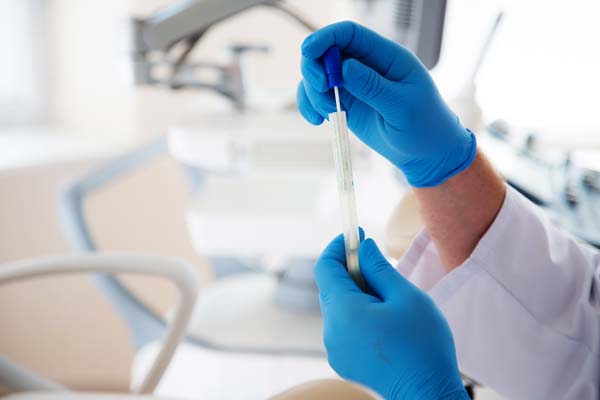What Is a Pap Smear?

Whether done as part of scheduled visits to an OBGYN or due to a suspected health issue, a pap smear is an important tool to keep women healthy. Without this, there is no way to ensure that everything is okay. While somewhat embarrassing for some women, the test is quick and painless.
Introduction to Pap smear
With a Pap smear, an OBGYN can collect a small sample of cells from inside a woman’s cervix. A laboratory then analyzes the cells to look for any abnormalities.
The Pap smear test
Based on a specific schedule, women need different tests in their bid to stay healthy. Two of these include a mammogram and Pap smear. For the latter, an OBGYN performs the test at their office. For this, the doctor uses a speculum, which is a metal instrument inserted into the vagina. The purpose of this is to spread the vaginal opening while keeping the walls separated. That way, the doctor can see inside the cavity.
With the speculum still in place, the OBGYN swabs the interior of the vagina to collect cell samples. Although the physician uses a flat scraping device or spatula, this does not cause any pain. With the test complete, the patient can return to all normal activities right away.
The now collected samples go to a laboratory for analysis. Under a microscope, the person doing the work can identify either normal or abnormal cells. The primary goal of having an OBGYN perform a Pap smear is to determine if the cells are normal, precancerous or cancerous.
Who needs a Pap smear?
For a Pap smear, a woman should have the first one done by the age of 21. However, if an OBGYN has any concerns, they may perform one earlier. For women between 21 and 65 years old, doctors recommend having this test done every three years. Women 30 and older can have it done every five years if they also have HPV testing. Sometimes, an HPV test takes the place of a Pap smear, something determined by the doctor.
Risk factors
Some women, regardless of age, fall into a potential risk category. In this case, an OBGYN would suggest they have a Pap smear done for the following reasons.
- Prior diagnosis of cervical cancer
- Prior Pap smear with precancerous results
- HIV infection
- Exposed to diethylstilbestrol (DES) before giving birth
- History of smoking
- Weakened immune system (due to chemotherapy, chronic use of corticosteroids or organ transplant)
Is a Pap smear always required?
There are some circumstances in which an OBGYN would no longer need to perform a Pap smear. For instance, women who have undergone a complete hysterectomy may not need this test. Typically, this only applies if the surgery was for a noncancerous condition. Again, this is something they would need to discuss with their doctor. Age also plays a role. Usually, starting at age 65, women do not need testing.
Talk to your doctor
Because there are quite a few factors involved with having a Pap smear performed, it is essential that you talk to your OBGYN. Some women want testing done simply because it provides them peace of mind.
Request an appointment here: https://eckhardtobgyn.com or call Donald Eckhardt Jr., M.D. , Kari Eckhardt W.H.N.P., C.N.M. at (281) 516-9441 for an appointment in our Tomball office.
Check out what others are saying about our services on Yelp: Pap Smear in Tomball, TX.
Recent Posts
Getting ready to welcome a child into the world is one of life's most meaningful experiences. Many expectant parents today choose to work with a midwife for prenatal care and labor support because midwives focus on personalized, patient-centered care. A midwife is a trained healthcare professional who provides comprehensive services throughout pregnancy, birth, and postpartum recovery.A…
Menopause is a natural transition in a woman's life, typically occurring between the ages of 45 and 55. Women's health services help you manage menopause-related symptoms and challenges while supporting your overall well-being. While it is important to remember that menopause is a biological milestone, it can impact your cardiovascular health, bone density, and mental…
OBGYN, or an obstetrics and gynaecology doctor, visits support lifelong reproductive health, and the right questions turn short appointments into clear decisions. Preparation reduces anxiety and improves outcomes. This guide provides practical and respectful prompts for preventive care, pregnancy planning, and symptom evaluation. Shared decision-making grows stronger when patients engage with the OBGYN as a…
A gynecologist may suggest incontinence surgery when a patient's loss of bladder control is interfering with daily life. Urinary incontinence is relatively common in older adults, according to the Mayo Clinic, and it can be a normal symptom of aging. It is important to speak to a qualified gynecologist if the symptoms are becoming too…


